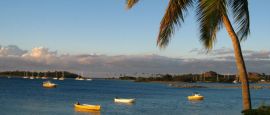Fiji Health Care and Vaccinations
| Title | Special precautions |
|---|---|
| Diphtheria |
Sometimes |
| Hepatitis A |
Yes |
| Malaria |
No |
| Rabies |
No |
| Tetanus |
Yes |
| Typhoid |
Yes** |
| Yellow Fever |
No* |
Healthcare facilities in Fiji urban areas are adequate for routine medical problems. In the rural areas public health facilities are few in number. Emergency response is extremely limited, and the few ambulances available. Two major hospitals, the Lautoka Hospital in the western city of Lautoka, and the Colonial War Memorial Hospital in Suva, provide limited emergency and outpatient services. Medical emergencies may be referred to Australia or New Zealand. Doctors and hospitals expect immediate cash payment for health services. The national emergency number for emergency services is 911.
Tap water is safe to drink in hotels, resorts and main towns, but precautions should be taken in rural areas. Bottled water is available. Milk is pasteurised and dairy products are safe for consumption. Local meat, poultry, seafood, fruit and vegetables are generally considered safe to eat.
Do you have any Feedback about this page?
© 2026 Columbus Travel Media Ltd. All rights reserved. No part of this site may be reproduced without our written permission, click here for information on Columbus Content Solutions.








 You know where
You know where